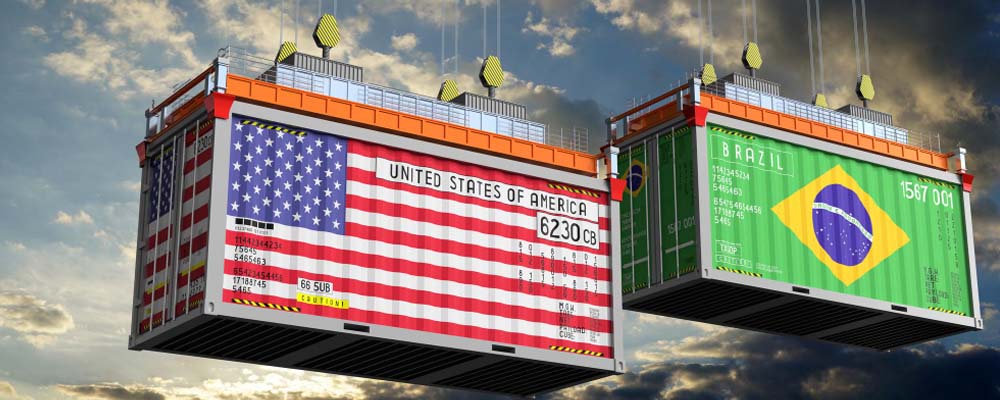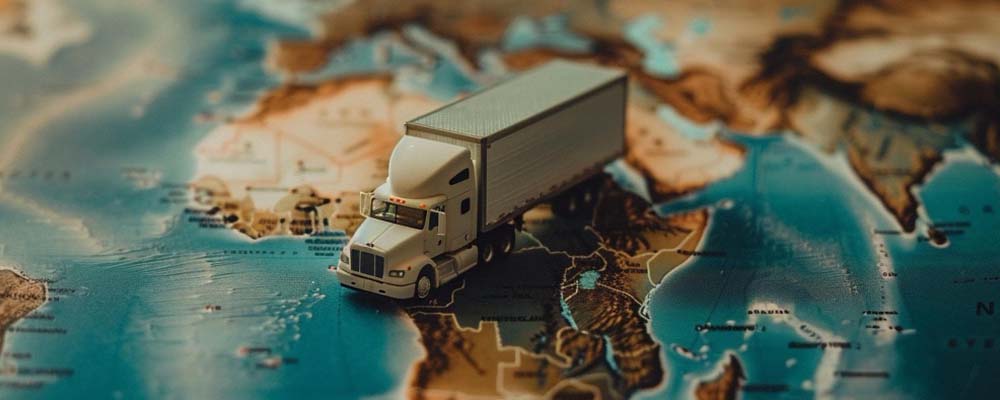
Navigating the complexities of international shipping can be daunting, especially when it comes to moving goods from the USA to Brazil. Whether you are a freight forwarding company, a logistics provider, an importer, or an e-commerce business, understanding the nuances of this process is essential for a successful operation. This blog post will break down everything you need to know about shipping from the USA to Brazil, from customs regulations to shipping periods, taxes, and more.
Understanding Customs Regulations in Brazil
Shipping goods internationally entails strict compliance with customs regulations, especially when sending items to Brazil. Understanding the specific requirements is crucial to avoid delays and penalties. Brazilian customs require several key documents for processing shipments, including the Commercial Invoice, Packing List, Bill of Lading, and Certificate of Origin. To ensure a smooth clearance process, it is vital to complete and submit all forms accurately and on time. Additionally, certain goods may need specific import licenses or permits before shipping to Brazil, so it’s important to verify if your products require special permissions and secure them in advance.
Furthermore, Brazil imposes various duties and taxes on imported goods, such as Import Duty, Industrialized Product Tax (IPI), and Merchandise and Service Circulation Tax (ICMS). Familiarizing yourself with these costs and integrating them into your pricing strategy is essential for maintaining profitability.
Shipping Periods from the USA to Brazil
Timing is everything in logistics. Understanding the shipping periods from the USA to Brazil helps in planning and setting realistic expectations.
Air Freight
Air freight is the quickest way to ship goods between the USA and Brazil. Typically, it takes 5-7 days for air shipments to reach their destination. This option is ideal for urgent or high-value items that require expedited delivery.
Ocean Freight
For larger shipments or less time-sensitive goods, ocean freight is a cost-effective alternative. Shipping by sea generally takes 20-30 days, depending on the port of origin and the destination in Brazil. Plan accordingly to ensure timely arrival of your goods.
Express Shipping
Express shipping services like DHL, FedEx, and UPS offer faster delivery times, usually within 3-5 days. While more expensive, this option is suitable for smaller parcels and e-commerce businesses needing quick turnaround times.
 VAT in Brazil
VAT in Brazil
Understanding Value Added Tax (VAT) is crucial for businesses shipping to Brazil. VAT is applied to most goods and services, and knowing how it works can save you from unexpected costs.
VAT Rates
Brazil’s VAT rates vary depending on the product type and state of entry. The standard rate is around 17%, but it can range from 7% to 25%. Check the specific rates applicable to your goods to ensure accurate pricing and compliance.
VAT Registration
Foreign companies shipping goods to Brazil may need to register for VAT. This process involves obtaining a tax identification number and complying with local tax regulations. Failure to register can result in fines and disruptions to your shipping operations.
VAT Refunds
In some cases, businesses can reclaim VAT paid on goods imported into Brazil. Keep detailed records of all transactions and consult with a tax professional to understand the refund process and maximize your savings.
Remote Area Surcharge
Shipping to remote areas in Brazil can incur additional charges. These surcharges compensate carriers for the extra effort and resources required to deliver to less accessible locations.
Identifying Remote Areas
Carriers usually provide a list of remote areas subject to surcharges. Review these lists before shipping to calculate the total cost accurately. This will help in setting appropriate shipping fees for your customers.
Calculating Surcharges
Remote area surcharges vary by carrier and can significantly impact your shipping costs. Typically, they are calculated based on the distance from major urban centers and the accessibility of the delivery location. Factor in these surcharges when planning your logistics budget.
Mitigating Costs
To reduce remote area surcharge expenses, consider consolidating shipments or using regional distribution centers. Partnering with local logistics providers can also help in navigating last-mile delivery challenges and minimizing additional costs.
Restrictions
When shipping to Brazil, it’s essential to be aware of the restrictions and regulations governing certain goods. Non-compliance can lead to confiscation, fines, or legal issues.
Prohibited Items
Brazil has a list of prohibited items that cannot be imported under any circumstances. These include narcotics, counterfeit goods, certain chemicals, and more. Familiarize yourself with this list to avoid shipping prohibited items.
Restricted Items
Some goods are subject to specific restrictions or require additional permits. These include firearms, pharmaceuticals, and perishables. Ensure you have the necessary documentation and approvals to ship these items legally.
Packaging and Labeling
Proper packaging and labeling are crucial for compliance and safe delivery. Follow international standards and Brazilian regulations regarding packaging materials, labeling requirements, and handling instructions to avoid issues during transit.
 Frequently Asked Questions (FAQ)
Frequently Asked Questions (FAQ)
How long does customs clearance take in Brazil?
Customs clearance in Brazil can take anywhere from a few days to a couple of weeks, depending on the complexity of the shipment and the accuracy of the documentation. Ensure all required documents are complete and accurate to expedite the process.
Can I track my shipment to Brazil?
Yes, most carriers offer tracking services for shipments to Brazil. Use the provided tracking number to monitor the progress of your shipment and stay informed about its status.
What happens if my shipment is delayed?
If your shipment is delayed, contact your carrier for updates and assistance. Delays can occur due to customs inspections, severe weather, or logistical issues. Having a reliable carrier and staying proactive can help in managing delays effectively.
 Conclusion
Conclusion
Shipping from the USA to Brazil involves navigating a complex landscape of regulations, taxes, and logistical challenges. By understanding customs requirements, planning for shipping periods, and being aware of potential surcharges and restrictions, you can streamline your shipping process and ensure smooth operations.
For businesses looking to simplify their international shipping, staying informed and prepared is key. If you’re ready to take your logistics to the next level, consider reaching out to us. We can guide you through the intricacies of shipping to Brazil.
Feel free to explore more resources and connect with professionals who can assist you in optimizing your shipping strategy. Together, we can make your shipping experience as seamless and efficient as possible.





 VAT in Brazil
VAT in Brazil Frequently Asked Questions (FAQ)
Frequently Asked Questions (FAQ) Conclusion
Conclusion



